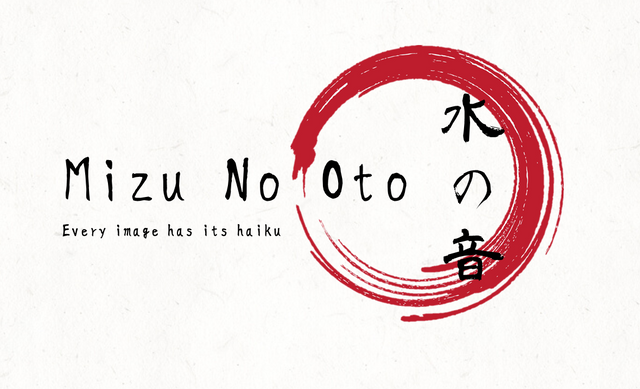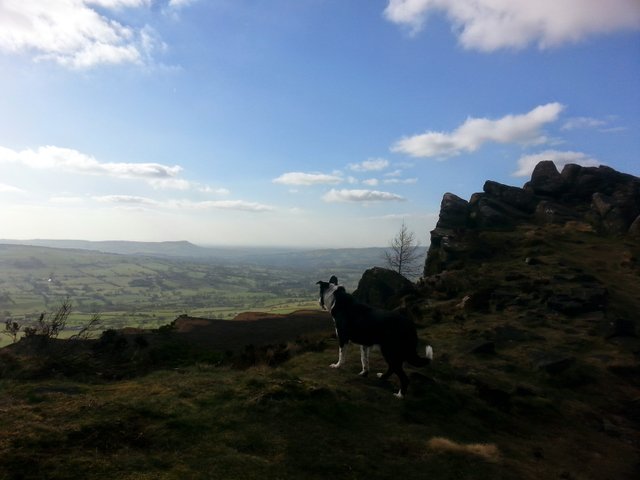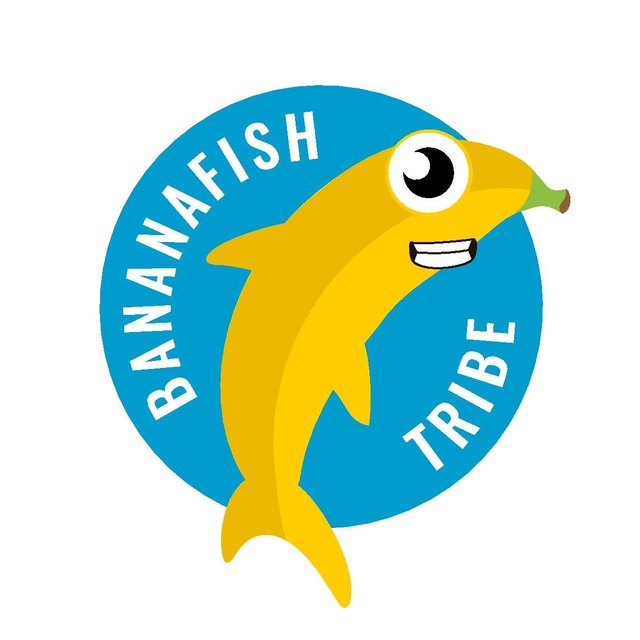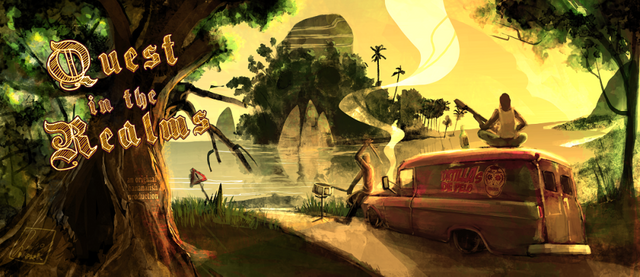Mizu No Oto - Every Image Has Its Haiku - Edition #29 (English)

haiku by Angiola Inglese (2019)
Welcome to the 29th edition of the Mizu No Oto contest, haiku friends!
Refreshed by the break week, I’m ready to give you a new photo to delight you in composing haiku.
I remind you, as far as possible, to read the other participants' haikus and to cast your vote.
To facilitate the reading, I advise you to report the haiku you have chosen for the contest in the comments, along with the link to the post.
I also remind you that it is allowed to participate with a single haiku, even if you can post some more for the sheer pleasure of doing it (but I ask you to indicate precisely what you intend to participate with).
Let’s the contest begin!
[Traducción Española]
¡Bienvenidos a la edición número 29 del concurso Mizu No Oto, amigos del haiku!
Refrescado por la semana de descanso, estoy listo para darle una nueva foto para deleitarle en la composición del haiku.
Le recuerdo, en la medida de lo posible, que lea los haikus de los otros participantes y emita su voto.
Para facilitar la lectura, le aconsejo que informe el haiku que ha elegido para el concurso en los comentarios, junto con el enlace a la publicación.
También le recuerdo que está permitido participar con un solo haiku, incluso si puede publicar algo más por el simple placer de hacerlo (pero le pido que indique con precisión con qué pretende participar).
¡Que comience el concurso!


For those that want to unleash their poetic potential, here is how this contest works:
• Look at the prompt image and let yourself be inspired by it.
• Write a haiku related to the prompt image. The haiku should be composed by 1-3 short verses with no title. The classical haiku form is 3 verses of 5/7/5 syllables, but other forms are allowed, as long as they remain in absolute brevity.
• The haiku should be in English or include an English translation.
• Post the haiku on your blog or in the comment section below this post. If you make your own post, don’t forget to put the link to it in the comment section below!
Don't forget to use the tag:
#haikucontest
Watch out for the @bananafish comment to this post, under which you can cast your vote (and try to win the Best Comment award)
Join the Bananafish Realms on Discord and chat with us: https://discord.gg/ZWmEUWT

Prompt Image:

[photo by @calluna]

• Kireji (切れ字), a cut between the 1st and the 2nd verses, or between the 2nd and the 3rd; the cut can be grammatical, as a sign of punctuation, or it can be a cut in the meaning, like two different images.
• Kigo (季語), an explicit or implicit reference to a season, that defines the time of the year in which the haiku is composed or referred to.
• Sabi (寂), the sense of the inexorable passage of time, the beauty or serenity that accompanies the advance of age, when the life of the objects and its impermanence are highlighted by patina and wear or by any visible repairs.
• Wabi (侘寂), the taste for frugal and natural things, rustic simplicity, freshness or silence; it can be applied to both natural and artificial objects, or even non-ostentatious elegance.
• Mono no aware (物の哀れ), empathy with nature and human life; the "feeling of things", nostalgia, regret for the passing of time, understanding of the changeability and of the transience without suffering.
• Yūgen (幽玄), sense of wonder and mystery; it represents the state of mind produced by the inexplicable fascination of things, the feeling of an 'other' universe, full of mysterious unity.
• Karumi (軽み), beauty in simplicity; poetic beauty reflected in its simplicity, free from preconceptions and moral judgment.
• Shiori (しおり), gentleness; the levity and the delicate charm that radiates from the verses, where things are evoked in the reader without aggressiveness or excessive explicitness.

Submission deadline: Wednesday 1sth May, 10:00 PM, GMT +1 (Rome Time).
The results will be out on Thursday 2nd May, 10:00 PM, GMT +1 (Rome Time).

The Naturalistic Component
We have seen that haiku refers to the present experience of the author.
This experience always has to do with nature, both when it speaks about phenomena and manifestations of the natural world, and when it speaks about human events that are intertwined with these phenomena.
Already the ancient waka poetry largely had a naturalistic argument: contemplation and mystical union between man and the world.
For Japanese poetry, nature is the external place where it is possible to get in touch with one's own profound "I", in an intimate and immediate way.
Reading haiku anthologies from different eras, it is very difficult to find something that investigates the essence of the individual beyond naturalistic evidence. On the contrary, it seems that there is no further truth, besides the "absolute truth" of natural daily life.
The haiku does not express judgment of beauty, ugliness, goodness or malice, it only describes the innate essence of things.
What matters is the mild and unexpected surprise that strikes both the author and the reader in noticing an apparently banal everyday object or situation, seeing it with a new perspective angle, like instantaneous and unrepeatable illumination.
烏 が だ ま つ て と ん で 行 つ た
karasu ga damatte tonde itta
a crow
got up in flight
noiselessly
(Ozaki Hōsai)
[Traducción española]
El componente naturalista
Hemos visto que el haiku se refiere a la experiencia actual del autor.
Esta experiencia siempre tiene que ver con la naturaleza, tanto cuando habla de fenómenos y manifestaciones del mundo natural, como cuando habla de eventos humanos que se entrelazan con estos fenómenos.
Ya la poesía antigua waka tenía en gran parte un argumento naturalista: la contemplación y la unión mística entre el hombre y el mundo.
Para la poesía japonesa, la naturaleza es el lugar externo donde es posible ponerse en contacto con el propio "Yo" profundo, de una manera íntima e inmediata.
Leyendo antologías haiku de diferentes épocas, es muy difícil encontrar algo que investigue la esencia del individuo más allá de la evidencia naturalista. Por el contrario, parece que no hay más verdad, además de la "verdad absoluta" de la vida cotidiana natural.
El haiku no expresa un juicio de belleza, fealdad, bondad o malicia, solo describe la esencia innata de las cosas.
Lo que importa es la leve e inesperada sorpresa que golpea tanto al autor como al lector al darse cuenta de un objeto o situación cotidiana aparentemente banal, al verlo con un nuevo ángulo de perspectiva, como una iluminación instantánea e irrepetible.
烏 が だ ま つ て と ん で 行 つ た
karasu ga damatte tonde itta
un cuervo
se levantó en vuelo
sin ruido
(Ozaki Hōsai)

Good haku to everybody!
Your bananafish haiku fan #1


Let’s the Bananafish Tribe grow together!

With delegations, Bananafish VP will grow and consequently the upvotes given to every contest entry will be higher.
Following the voting trail is a way to make sure you always support the other participants to the Bananafish contests, automatically upvoting the posts (but not the comments) Bananafish upvotes.
Join the Bananafish Realms on Discord and chat with us: https://discord.gg/ZWmEUWT
If you’re interested, here you can find all the information needed.

[banner credit: @f3nix]
Other Bananafish awesome activities:
Bananafish Knights interesting creative works:
@cyemela:
Red Roses, an interesting audiobook which he describes as a “Shakespeare meets Voltaire retelling of Richard III [that] helps to change the perception of this former English King”.
You can find it here: https://www.downpour.com/red-roses?sp=274337
Steemit Blog: Contests, on Kindle or parperback, that “offers 180 pages of high octane performance driven Steemit blog contest entries from the author while giving you the contacts you’ll want to know in order to begin your contest career on the Steemit blockchain.”
https://www.amazon.com/gp/product/B07MVPT72Q?pf_rd_p=c2945051-950f-485c-b4df-15aac5223b10&pf_rd_r=JJKTKWBJWMDK97NQAVRR@dirge:
Reports on Trepidation, on Kindle, is a collection of short stories; “written with a preference for realism, these stories offer plausible scenarios of the grotesque, pessimistic or supernatural.”
https://www.amazon.com/dp/B07375V8PV



Hello! This is the first time I write a haiku and I participate in this contest, but here I leave my participation, I hope you like it.
Greenery in calm.
Lost in your thoughts
the friend waits
=•=•=•=•=•=•=•=•=
Verdor en calma.
Perdido en sus pensamientos,
el amigo espera.
Que bueno verte por aquí querida @isauris, mucha suerte en el concurso tu haiku inspira paz.
Me alegra verla por aquí 😊 gracias por las buenas vibras, suerte para usted también ❤
Welcome to Mizu No Oto! Not bad, not bad at all...keep on writing haiku. It's addictive ;)
Oh yes, it is!!
So beautiful world,
That even the beasts behold.
They have a soul too!
https://steemit.com/haikucontest/@darthgexe/mizu-no-oto-29-every-image-has-its-haiku
Is a dog a beast?
Such congenial companions
More like us than not
It's a beautiful haiku, but I don't see dogs as beasts :)
I did not intend to use the term beast in a derogatory manner if that seems to be the case, I apologize.
Certainly, the word can be something subjective, in my haiku I mean not only dogs, but I wanted to extend to all animals in general, so I use the word beast as a synonym for an animal.
Dogs, although domesticated and trained, are still animals, they are loyal and very noble creatures, but they do not have the same degree of awareness as humans.
I still respect your vision and understand it, and I apologize if my poem seemed a little denigrating to our four-legged companions.
I like the word "beast" in this case. I also was trying to catch the primal nature of the dog, doing what a dog does, not at all negative.
And that the dog "beholds", a word that has spiritual meaning for me, helps me to feel the power of the scene. There is a lot of depth in your simple words @darthgexe. very nice.
I like your defense. And I agree, the word "beholds" elevates not only the dog, but the haiku. It is a lovely, thoughtful haiku.
I didn't mean to criticize...this is poetry and my reaction was emotional, not intellectual. I'm a softy when it comes to dogs.
Don't worry, it's okay, buddy. I understand.
To add a little spice to the dispute (in a good-natured and amused sense) I could say that I personally do not believe in the existence of a soul distinct from the body... :P
(Marco)
Wandered very far.
I lost my master again.
Follow Fall winds home.
These are fun. Please keep them coming.
I like this image, even though in reality I believe that the mistress was very close, and taking the picture ;)
( I have corrected the image a bit, so detailes in the shades
be more visible. not crusial, but nevertheles... regards!)
here is my take on it, very all of a sudden.
its my 1st time, so... any remarks are much appreciated.
my dog
left alive
but where is the boy?
very much more clear and lighting is everything thanks some details are better observed @qwerrie
muchisimo mas nitido y la iluminación lo es todo gracias se observan mejor algunos detalles
I think I may have commented on this on your blog, but here it is again
Where is the boy?! I find this a bit alarming, as if the boy has just fallen over the edge of the cliff and the dog doesn't know what to do. The changed photo, while clarifying some things, does not evoke early morning as well as the original.
This haiku fully captures the spirit, with originality in outlining a situation that seems tragic!
Higher perspective
Climb a mountain to achieve
Be Canine Alpine
I expected humor from you ;)
I was deadly serious...
The sea is calling
And I hear my master too
Chase the gulls or not?
So many great entries to read!
Welcome to Mizu No Oto! There are always a lot of great entries! Thank you for yours!
One haiku:
The lure of instinct
Rooted in genetic code
Yearning for the wild
That a great thought one :)
Thank you. Maybe that will be the one I choose to enter :)
Haiku lovers: I leave the link of my entry to the contest and my exercise, grateful for the call of @bananafish.
https://steemit.com/haikucontest/@gracielaacevedo/mizu-no-oto-every-image-has-its-haiku-edition-29-english
I will read your poems, with pleasure, to comment.
dear and loyal, dog.
Friend, wait for me.
I love this...
Thank you
I also see the dog as alert. Alert in its love, in its care, always loyal.
...and alone, waiting
Another haiku:
Loamy earth under
Blue sky with billowing clouds
Peace in solitude
Vote your favorite haiku down here:
I love the haiku by @qwerrie
Very poetic and suggests a deep sadness in the reader's mind. Qwerrie gets my vote this week.
Posted using Partiko Android
I love @sayury as rewritten by @raj808. If the rewrite is true to the spanish original, this is the one of all that I have read (and I have read most of them! - so many this time!) that best captures the power I myself feel standing in such a spot at such a time.
So many beautiful haiku. I think this week @raj808's is my favorite. Not only is his haiku conceptually satisfying but his language soars.
My fav haiku is @sayury
This haiku has a lovely aspect of self reflection. There is a yearning wondering at the world that I imagine a dog might have when looking out from three peak of the fells.
🙂
Posted using Partiko Android
This week my favorite poem is the haiku by @cyemela.
The one by @darthgexe is very sweet
My vote is for @oacevedo.
I loved your participation and I quote here the comment that I left in it:
Among the exercises I could read, I like the exercises of @isauris, @oacevedo, @flordi, @salvao, @sayuri and @jmvanbreda. In all of them there is a sensitive perception of the landscape and the moment represented by the dog. I vote for the exercise of @oacevedo, that offers us a subtle sensitivity and of great interiorization of what that landscape could mean before the condition of that observer.
Hello, on this occasion I have read many of the poems presented. I really liked @josemalavem, @gracielaacevedo and @jacuzzi haikus. But, above all the others, I loved @johannfrare poem. Let me repeat it here so that more participants can appreciate it:
The certainty of life exemplified with simplicity and depth, Spectacular!I'm very sorry, but @johannfrare posted after the deadline, so he's not in the competition this week. But I agree, the haiku is very good.
Ops... let me vote for @jacuzzi then ;)
Awe shucks. Thanks Salvao. %)
Posted using Partiko Android